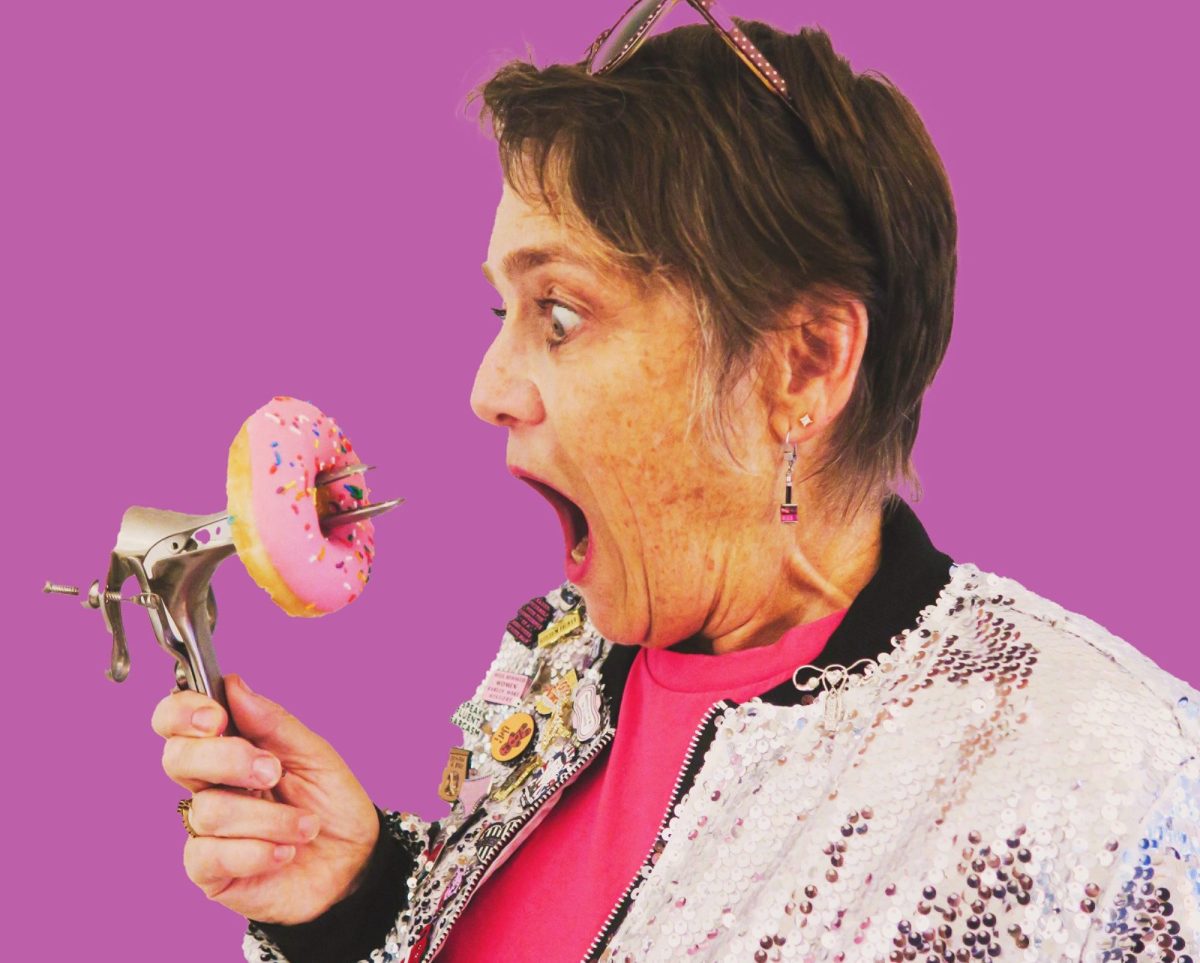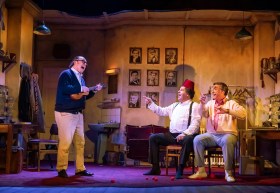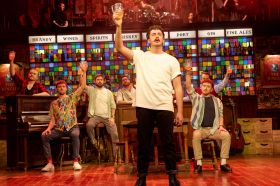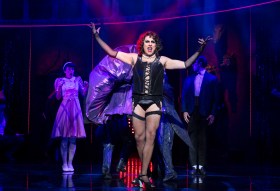In Jimmy Carr’s memoir, the arena-filling UK comic talks about how he quit his day job to become a club comic. Just six months into his new life, he could make a living purely from stand-up. To Australian comedian Nick Robertson, it read like a “fairy tale”.
With Australia’s smaller population, having some side hustle or a fully-fledged day job is generally necessary, even for prominent comedians. Some gravitate to lucrative radio and television gigs or presenting roles, while others have jobs far removed from their comedy work.
Whether it’s a slog to pay the bills or a career they’re genuinely passionate about, finding the time and energy for work outside comedy can be a juggling act. On the other hand, an interesting career can make for great on-stage fodder and give a comic a distinctive edge in a saturated market.
Here, Arts Hub talks to four comedians with day jobs about how they balance their two roles – lessons valuable to all comedians.
Jump to:

Noah Szto
The day after the Melbourne International Comedy Festival Gala, most of the participating comics presumably enjoyed a moment of downtime to reflect on performing on comedy’s biggest night and prepare for their Festival run. But one of the event’s youngest performers, Noah Szto, was back at his hospital for a shift in the Emergency Department.
After winning Best Newcomer at the Festival last year, Szto returns with Med School, which uses songs and stories to tell the tale of his life in the medical profession. He says keeping up his flourishing comedy career has already become more challenging since graduation.
“As a medical student, it was pretty manageable because you have a lot more freedom to bounce out of things,” he tells ArtsHub. “Now, I’m just slammed; I’ve had to be very proactive with my scheduling.” Months ago, he arranged to take two weeks of leave in the back half of his Melbourne run of shows to avoid complete burnout.
Szto says finding time to write has also become a major challenge. “It’s tricky because you finish a shift, and you’re still exhausted and your brain is a bit foggy. I’ll often use the after shift [time] to do administrative stuff – that is kind of mindless. The actual creative work I try and save for days I have scheduled off on the weekend or if I’ll get up early in the morning and do it before work.”
Despite the years of study and sacrifice to get into medicine, Szto says he dreams of working full-time as a comedian. “I’ve often said that medicine is my fallback or side hustle, which is insane,” he says. “The plan is at some point to take time away from medicine to do comedy. If I take a year off and that becomes more years, and I never go back to medicine, that’s going to be it. I really love medicine, but it’s a very needy profession. While I’m young and the audience is hot, I’d love to see how far I can take this comedy thing, knowing that medicine will always be there if I need it.”
Does Szto ever worry that if he goes full-time as a comedian, he won’t have as much interesting subject matter to discuss on stage? “That is a huge concern,” he admits. “I feel like I’m working full-time just for the content, which is an insane reason to be doing medicine. You see it happen with lots of comics, they hit the big time and, all of a sudden, they’re talking about hotels and airports because that is where they spend all their time. I’m really grateful to continue to have medicine, for some point of difference in my life. I don’t think you can just do comedy all the time.”

Sarah Stewart
Before Sarah Stewart started as a midwife some four decades ago, she dreamed of an entirely different career; she wanted to be the next Doris Day. But when her daughter gifted her an online comedy workshop during COVID, she decided it was high time to tick off a bucket list item and return to her ambition to be on stage.
Now in her 60s, Stewart’s debut solo festival show Midwife Crisis, tells stories from across her life, including her experiences in midwifery. She has now transitioned out of clinical practice and into a related policy job. She has also been on carer’s leave to look after her husband, who is sick with cancer.
Changing roles has meant Stewart has more flexibility to tour with her comedy, though she says there are still restrictions on how much she can discuss her day job. “I have to be careful what I say because a/ I’m in the government now, and b/ I can’t be talking about patients,” she explains. “To be honest, that has been a challenge.”
After a run at the Adelaide Fringe Festival (South Australia), punters told Stewart they wanted to hear more about her work, so she’s adding extra stories from that part of her life, including yarns about a patient giving her a lovingly made but unpalatable fish head soup and a Rottweiler biting her when she was hard at work.
Stewart says she has long used humour in the workplace, including to break the ice with patients she would visit at their home. “I’ve always been a believer in laughter being a great way of connecting with people,” she says. “When I worked in community settings, I went into all sorts of different places, and even if I didn’t necessarily feel very safe, I’d make a joke, and we’d have a bit of a banter. That breaks down barriers. But I also think humour can be very healing sometimes, even in the saddest of situations.”
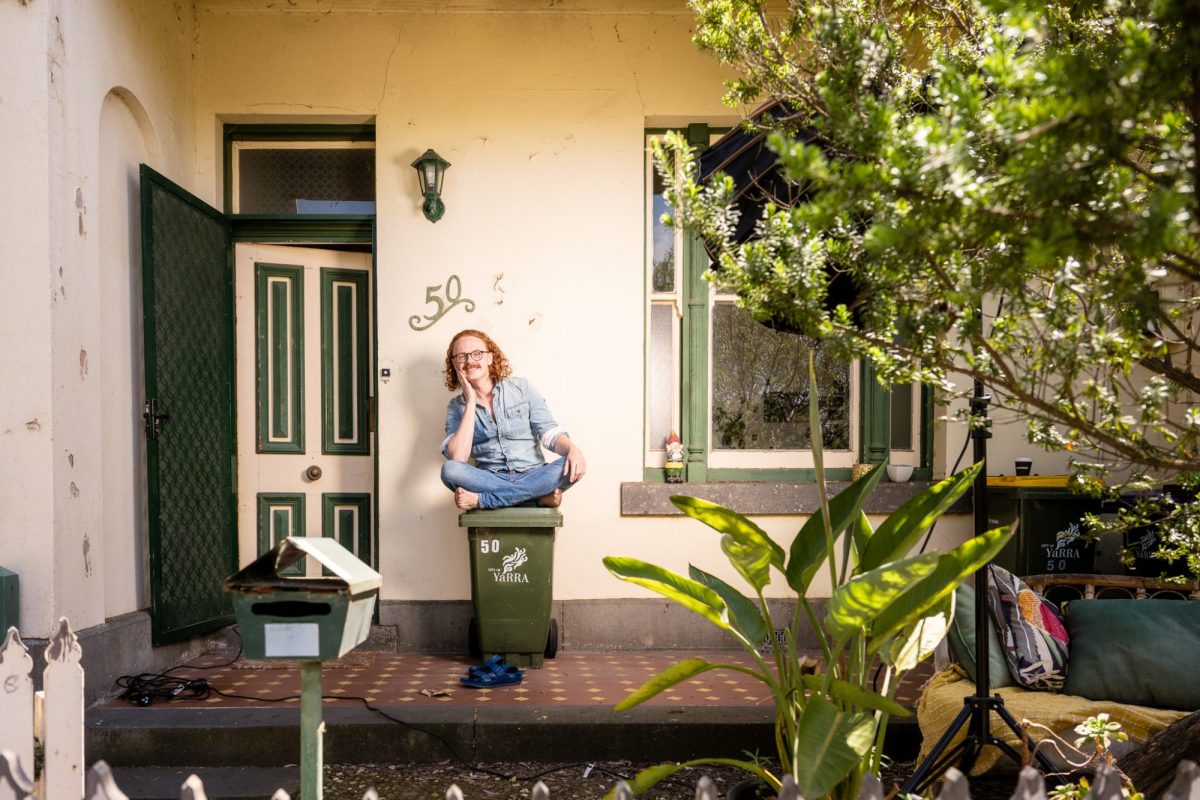
Nick Robertson
Chances are Nick Robertson took the photo for your favourite comedian’s festival poster. Yet his involvement with comedy doesn’t end there; his storytelling show of share house life, Everything That Happened at Number 68, has Sydney and Melbourne dates after debuting at Adelaide Fringe Festival this year.
Robertson took a winding path to his two creative pursuits. He appeared in the Class Clowns program for school-aged comics as a teenager. Then, for a while, he put comedy on the back burner and poured his energy into music journalism until an opportunity – albeit unpaid – came up to take photos at a magazine for which he was writing. “I started shooting, and it just took over my life,” he recalls. Increasingly, he started photographing comedians and yearning to get back on stage. “I had a big old identity crisis about phasing out of the scene, so I started gigging again,” he says. “It’s been a long journey, but here we are.”
He says being a comedian himself has helped him capture memorable portraits of his peers. “The way I approach my photography is not about making them look the most beautiful or the most polished. It’s making them look the most them. Having the knowledge of the comics and their stage personas allows me to try and capture that in the lens.”
Robertson is grateful to have found a creatively fulfilling and flexible freelance career. “I’ve shaped this photography and comedy life of mine in a way that allows me to tour my comedy, but still earn money on the side and have a lifestyle that allows the ebbs and flows. When I need to focus on the stage stuff, I can take space to do that.”
Fittingly, Robertson’s two biggest inspirations as a comedian – Sarah Kendall and Daniel Kitson – work in a way he sees as a kind of parallel to photography. “The way they tell stories makes me go, ‘OK, this is possible; there is space in the comedy world for what I want to do’. Watching them is a masterclass of fragmented storytelling. It tickles my photography brain because they take all these small moments to paint a larger picture. It’s like a gallery of photos on stage, but in words.”
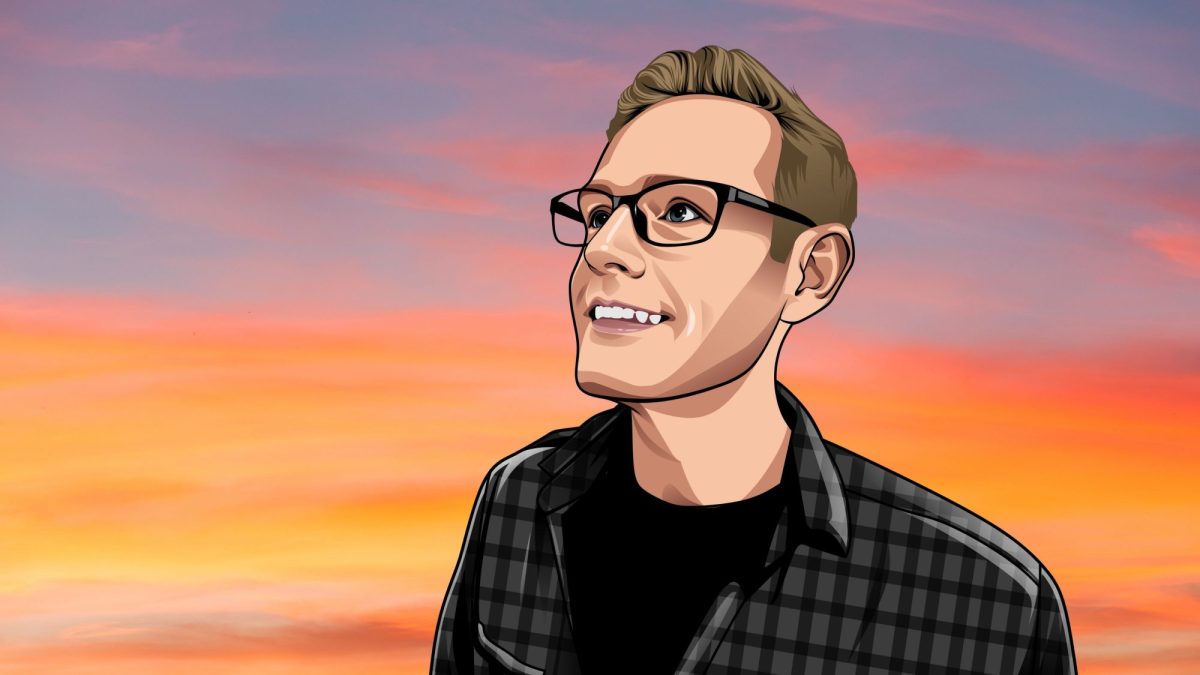
Julian O’Shea
While Julian O’Shea’s day job as a university lecturer seems far removed from the comedy festival circuit, he says there is significant overlap between his two worlds. Both roles revolve around digital education and the potential of short-form video to educate while it entertains.
“A lot of my stuff is about engaging with the media in a very broad sense,” O’Shea says. “So being part of it [as a creator] is surprisingly useful in understanding audiences and trends, and seeing what it’s like on the other side of the coin.”
O’Shea now has more than 100,000 subscribers to his YouTube channel, where his short videos cover Melbourne’s urban design and transport system. His returning show, M is for Melbourne*: The World’s Mostly Liveable City built on these videos, while his newer show, One For The Record Books uses a lifelong passion for The Guinness Book of Records (now called Guinness World Records) as a jumping-off point. “It’s been a really interesting lens. It’s a historical document that dates back to the 1950s, and it’s an exploration about why people do things. What matters? What does legacy look and feel like? It’s also been a nudge to go and do some very silly adventures.”
O’Shea says he could become a full-time content creator, but he much prefers his current double duties, even if it means upping the caffeine intake to get through the festival season. “Teaching at a university is a very fulfilling job, and I truly like it,” he explains. “I also think I’d be a little bit nervous if I had to pay my rent or mortgage through content. You would always have to make things that are popular rather than the content you want. There is creative freedom in it not being essential to live.”
